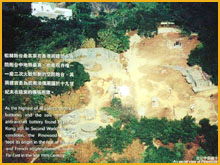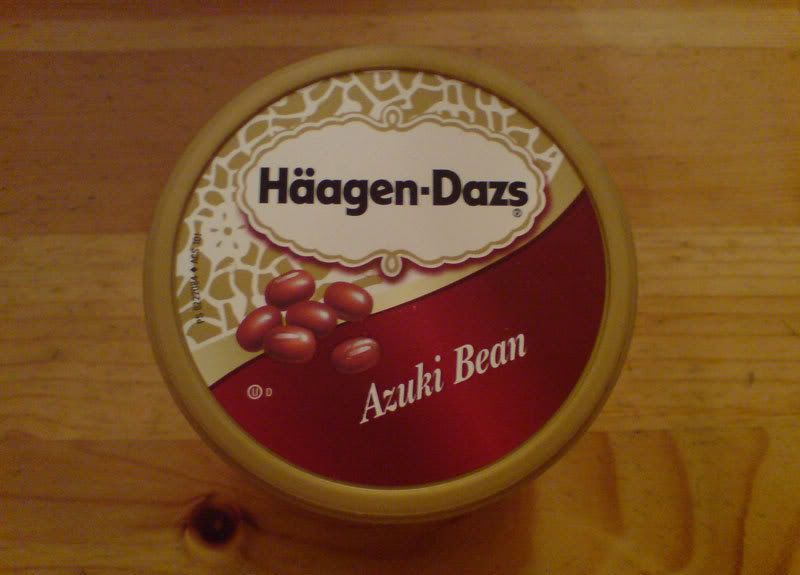 November 12th 2006 was Remembrance Sunday - the day Britain remembers its war dead and pays tribute to those who lost their lives in past conflicts. Having been brought up the U.K., I was taught a lot about WWII at school and of course U.K. popular culture has covered those events extensively in films and television programmes.
November 12th 2006 was Remembrance Sunday - the day Britain remembers its war dead and pays tribute to those who lost their lives in past conflicts. Having been brought up the U.K., I was taught a lot about WWII at school and of course U.K. popular culture has covered those events extensively in films and television programmes.As 'bbcs', I think it's fair to say that we know quite a lot about the war from Britain's perspective but almost nothing about the war from an Asian perspective. This is something I wanted to address.
For example, it recently dawned on me that I knew nothing about WWII history in relation Hong Kong. I kind of promised myself to look into it and find out more about that period in history and I was pretty shocked at what I discovered after just a few minutes of searching.
Surprising fact no. 1: Japanese forces launched their attack on Hong Kong less than 8 hours after they bombed Pearl Harbor. It's a little shocking to me that the Pearl Harbor attack is an ingrained part of my general knowledge - everyone knows about Pearl Harbor, right? - and yet I had no idea about the Hong Kong attack until a few days ago.
British, Canadian and Indian forces did their best to repel the Japanese attack, but their air force was decimated, most of the defences were geared towards a naval attack and they were outnumbered two to one on the ground.
The Battle of Hong Kong lasted 18 grueling days before the British governor surrendered at a meeting in the Peninsular Hotel on December 25th, 1941. Yep, Christmas Day. Yep, that Peninsular Hotel. Where Felix is.
An account of the military action can be found here.
Surprising fact no. 2: Hong Kong was under Japanese rule for 3 and a half years. Again to my shame I hadn't really been aware of this part of Hong Kong's history. Japanese General Rensuke Isogai became the first Japanese governor of Hong Kong after the British surrender and remained so until the Japanese themselves surrendered on August 15th 1945, after the Hiroshima and Nagasaki bombs.
During the occupation, Hong Kong continued to be a bilingual island but the languages were Chinese and Japanese, not English. Shop signs and street names were changed accordingly. Lane Crawford had its named changed to Matsuzakaya. The Peninsula Hotel became the Matsumoto.
Over 2000 people living in Hong Kong who were of Allied nationality were placed in an internment camp in Stanley.
The Hong Kong Dollar was outlawed and being caught with HKD would result in torture. Locals were forced to exchange their HKD for Japanese war currency. But this currency became further and further devalued as the war progressed and was ultimately declared worthless. This meant Hong Kong citizens who no longer had their original HKD were made completely destitute.
Surprising fact no 3: Hong Kong's citizens endured war crimes and tyranny during the Japanese occupation. I had always associated Japanese war crimes with mainland China (the much debated Nanjing Massacre, for example) and had no clue that similar incidents took place in Hong Kong.
It is reported that the day of the British surrender, Japanese troops tortured and killed injured soldiers and medical staff at St. Stephen's College, a field hospital (http://ststephen.org.hk/History.htm)
Entire villages were destroyed by the Japanese; Cheung Sheung is one where only a trace remains. Thousands were repatriated to China. Death by starvation caused by a mis-managed economy were common, and dissent and rebellion were punished by torture and death.
Reliable figures are hard to come by but there are reports that up to 10,000 rapes may have been committed by Japanese troops in the early stages of the invasion and the total population of Hong Kong is known to have dropped from 1.6 million to around 600,000 by the end of the occupation.
Surprising fact no. 4: Hong Kong had it's own WWII resistance fighters. Some did fight back. The Gangjiu Da Dui Guerillas gained a foothold on Lantau Island and were able to intercept Japanese intelligence as well playing a central role in the rescuing dozens of Allied nationals, including 20 Brits.
The Dongjiang Guerillas came from Guangdong and were mostly peasants, students, and seamen. After the British retreat, the guerilla force numbered 6000 and established bases in the New Territories and Kowloon. They protected traders in Kowloon and Guangzhou, killed those they believed to be collaborators, and attacked Japanese bases at Tai Po and Kai Tak Airport. They also rescued Allied prisoners-of-war (Sir Douglas Clague, Professor Gordan King, David Bosanquet) as well as twenty American pilots who parachuted into Kowloon when their planes were shot down by the Japanese.
Little seems to have been recorded about the Hong Kong WWII resistance movement and details are sketchy.
Here are a few links for further reading:
Hong Kong Veterans Commemorative Association
A recent protest in Hong Kong called for Japan to acknowledge and apologise for its actions in Hong Kong during WWII.
Japanese tourists came to Hong Kong to learn more about the events surrounding the occupation.
Wikipedia summary: 'The Battle of Hong Kong'
The Chinese Alliance for Commemoration of the Sino-Japanese War Victims
Answers.com: 'The Japanese Occupation of Hong Kong'
A military view of the ill-fated battle
Well that's my attempt to provide a very condensed 'primer' about Hong Kong during WWII. I hope it's been useful. I have to admit that I was little ashamed at how little I knew about this episode in history and I'm glad I started researching it. After all, this all happened just 65 years ago.



13 comments:
They should make a film of this story!
More on the Battle of HK... This link was emailed to me:
http://www.geocities.com/rcwpca/
Hi - nice post. Strictly speaking the Japanese occupiers didn't issue Yen - they issued Japanese War Currency, tailor-made for conquered regions.
Thanks, I've amended the post.
You can find out more on this subject at the Hong Kong Museum of History, where their permanent exhibition is the "story of Hong Kong". It actually covers from when it was just a rock at the dawn of time, up to the handover in 1997, and I was surprised at how good and interesting the exhibition was. As with most quality exhibitions, the different era's in HK's history are brought to life with lots of exhibits, models, photos and multimedia. My parents certainly enjoyed it as they reminisced about their own history and childhood.. (We went in March.)
Thanks for the tip. I'm going to try and visit the next time I'm over.
HK Museum link:
http://www.lcsd.gov.hk/CE/Museum/History/en/aboutus.php
bbb
its strange that you were not told much about this.
there were a lot of battles in the east that included British troops so it should have been in you're history class
I think history lessons in schools spend too much time on American history and need to learn more about the rest of the world.
For years i had to do the great American depression, American independence and slave trade. Ok knowing these things are all very well and good but they took up too many years of my classes which should have been spent on other things (luckily I am interested in the east so I learnt a lot on my own)
One thing I have noticed about the west is a lot of them don’t seem to understand the difference between North and South Korea and look at them as all being the same. This makes me very angry simple things like this should be taught!
This post is very old, but i feel i want say something. :)
I'm a BBC and i was always told about the japanese occupation of Hong Kong when i was growing up by my parents and grand parents. They always mentioned all the brutality and crimes the Japanese committed. I always assumed most chinese famillies(from Hong Kong), would mention it.
My grand father (from my father's side)joined a resistance group that fought the Japanese and also the communist during that time. He said when there was no japanese about, the communist would attack, but they would join forces to attack the Japanese when they showed up.
My grand mother (from my mother's side) was held at knife point by the Japanese and she witnessed the beheadings of people in her village.
Even though i was told all this, i do not hold any bad feelings towards the japanese of today, as it is important we learn from history, instead of passing on the anger and hatred to the next generation.
Thanks for your comment, anonymous.
Hey, I'm doing a history project about this, and i didn't realize how much there was to it, thank you for posting this. :D
Wow! Thanks for sharing this ... I know my family talks about this in vague terms so it's good to get the facts and to know the context. My uncle was a young boy and when the Japanese came through and dropped bombs near his village in Zhong Shan, near Macau, he was traumatized so much that he stuttered for the rest of his life. My grandpa remembered folks putting up silly signs something to the effect of "Hail to the Emperor!" to avoid harassment by the occupying forces. It was a sad period of history that we should learn not to repeat.
Fantastic
War is a fascinating subject. Despite the dubious morality of using violence to achieve personal or political aims. It remains that conflict has been used to do just that throughout recorded history.
Your article is very well done, a good read.
Post a Comment